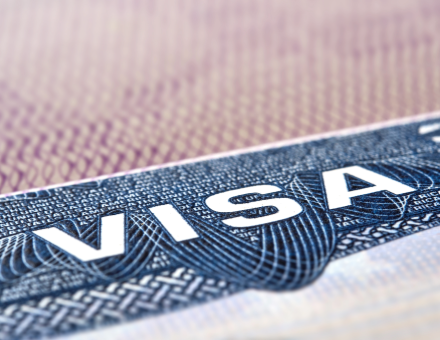SAM Magazine—Longmont, Colo., July 7, 2025—While Washington has been focused on Trump's megabill, the administration has continued to pursue its anti-immigration policies and efforts to downsize the bureaucracy. The J-1 cultural exchange program, which many resorts tap for seasonal workers, could fall victim to this effort in a year or two, even though it appears to be operating normally at the moment.
The J-1 cultural exchange program, which many resorts tap for seasonal workers, could fall victim to this effort in a year or two, even though it appears to be operating normally at the moment.
At present, it appears that the administration's attempts to weed out undesirable international students has not diminished participation in the J-1 program. Ober Mountain, Tenn., HR director Michelle May, whose company employs J-1s summer and winter, told SAM "there's been no impact" from immigration policies generally or the three-week pause in applicant interviews that occurred this spring. "Our sponsors all say they are getting applicants, more than enough to meet needs," she said. Visas have been getting approved, and "we are on track to get our numbers," May added.
J-1 sponsor Greenheart Exchange echoed that assessment. "Overall, enrollment for the program is steady; many of the countries we have been partnering with are reporting to be at capacity for the winter 2025 season," said senior account manager Renee Clarke.
During the three-week pause in interviews, the State Department reviewed the J-1 visa application process and developed new guidelines. As with student visas generally, those guidelines include heightened scrutiny of applicants overall, including the vetting of applicants' social media accounts. This new process is more involved and takes longer to complete, but it does not appear that this will cause a significant decline in the number of J-1 visas approved this year.
Next year, the situation with J-1s could be quite different, though, if the Trump Administration has its way. Its budget proposal for fiscal 2026—which technically starts in October but is often delayed until December—would impose deep cuts to the State Department budget, including a 93 percent cut for the Bureau of Education and Cultural Affairs, which oversees the J-1 program. That would limit the bureau's ability to process visas in a timely manner.
Trump's budget for State reflects the priorities of Project 2025, which has served as the blueprint for much of the Trump Administration's actions and calls for the total elimination of the J-1 program.
But several factors could derail that proposal, not the least being that Congress typically makes its own budgetary decisions, separate from the President. And the J-1 program has plenty of supporters in Congress, and even within the Administration. One example: Secretary of State Marco Rubio was a strong supporter while he was a Senator from Florida, a state that ranks third overall in states that use these special student visas, after California and New York.
And he has continued to support the program as the head of State.
National Ski Areas Association (NSAA) director of regulatory affairs Dave Byrd told SAM that the association is individually lobbying members of Congress, especially Republicans and newly elected members, while joining other stakeholders outside the ski industry in lobbying Congress to keep the program fully funded and alive. Further, NSAA plans to recruit Republican governors in ski states to send a letter of support for the program to Rubio, emphasizing how valuable the program is for businesses in their states and especially for rural economies.
Beyond the administration’s proposed budget cuts, Byrd stressed, the State Department needs to reconsider some of the social media vetting that is currently happening with visa applicants.
Among the other organizations that have a vested interest in the continuation of the program, Byrd pointed out, is the military. The armed forces have a program that links military families with international au pairs to provide child care, which has become an acute need in light of the steep cuts to veterans programs by the Trump administration. Many concessionaires in the National Parks also rely on J-1s for seasonal workers, as many are located in very rural areas with little available labor.
Individual resorts can get involved, too. Contact your Senators and Representatives to make sure they understand the program's value and urge them to keep it funded. Byrd stressed that Congressional Representatives and Senators need to hear directly from ski areas themselves. "NSAA can assist and coordinate in that outreach," he added.




